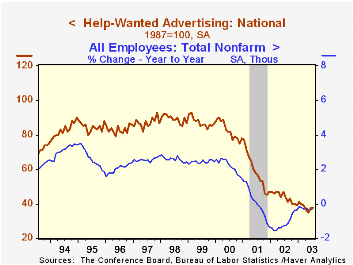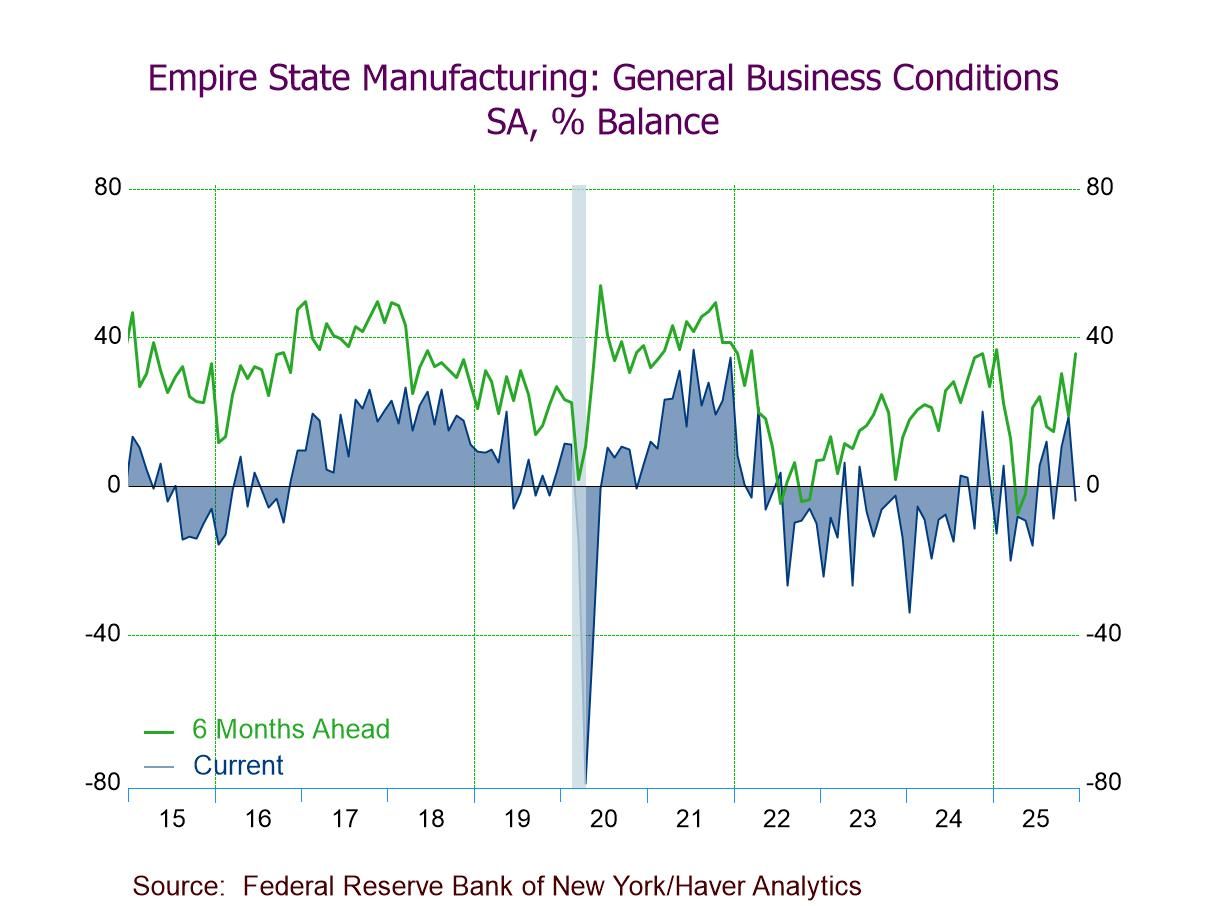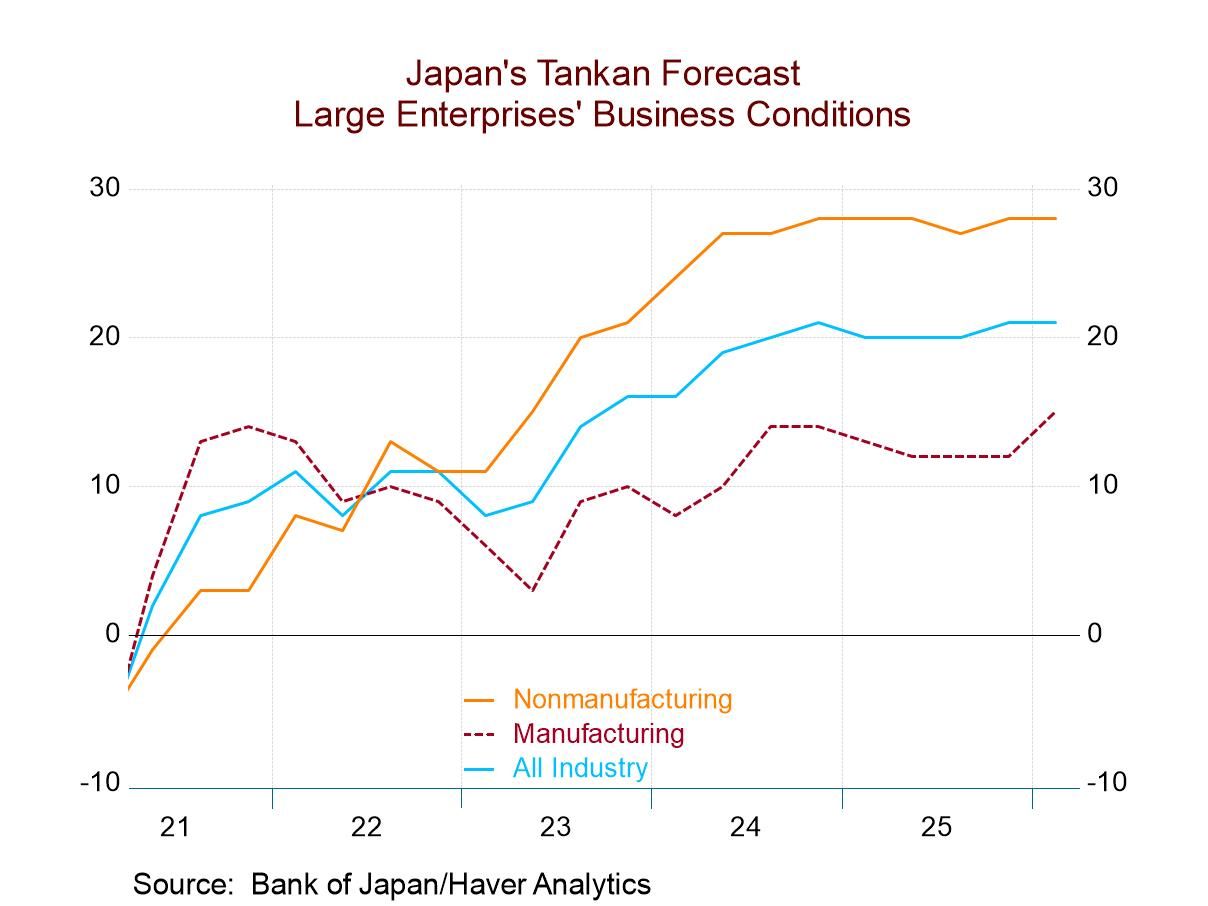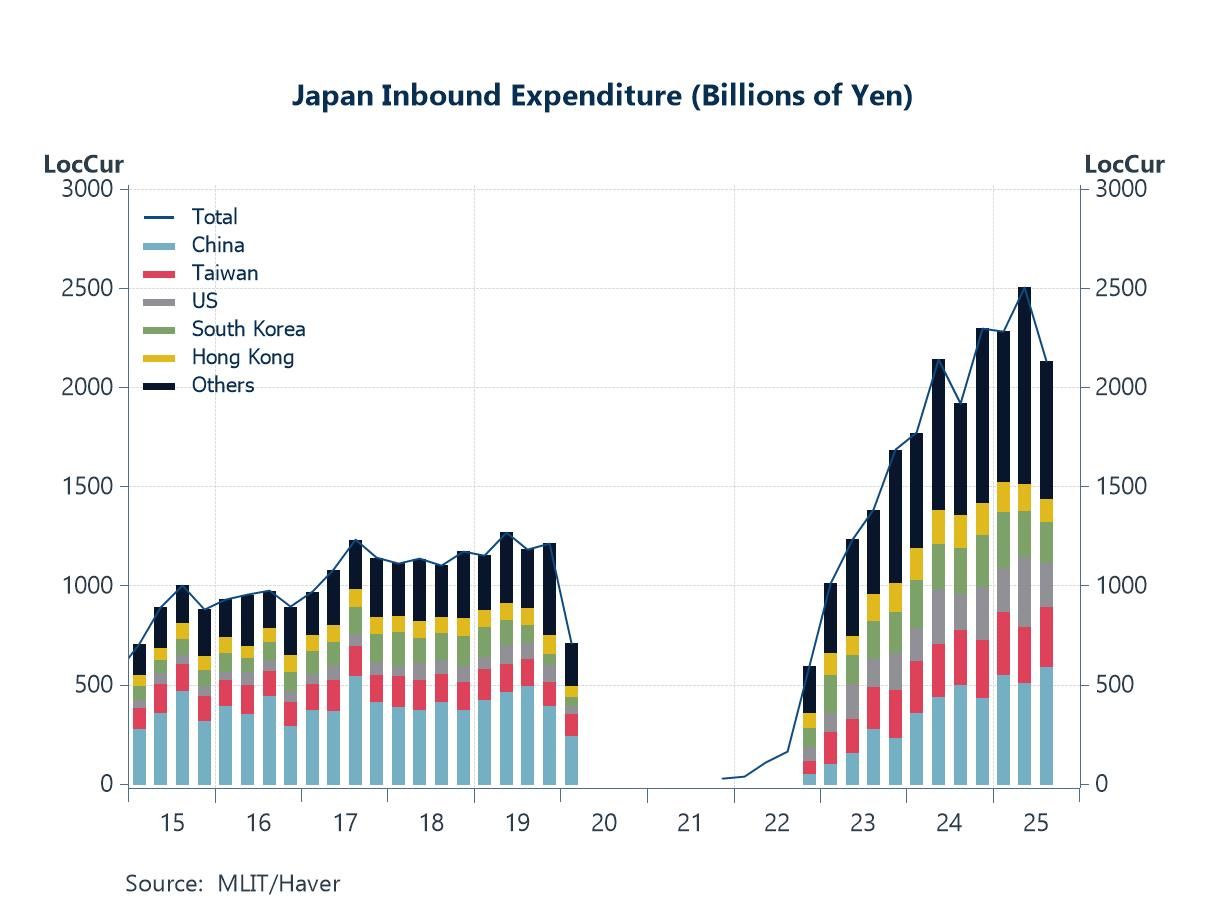 Global| Aug 28 2003
Global| Aug 28 20032Q U.S. GDP Growth Revised Up, Profits Surged
by:Tom Moeller
|in:Economy in Brief
Summary
The US economy grew faster than estimated in the advance report issued last month. The upward revision to a 3.1% rate of growth was slightly greater than Consensus expectations for a revision to 2.9%. 2Q was the fastest rate of real [...]

The US economy grew faster than estimated in the advance report issued last month. The upward revision to a 3.1% rate of growth was slightly greater than Consensus expectations for a revision to 2.9%. 2Q was the fastest rate of real GDP growth since 3Q 2002.
The upward revision reflected less of drag from the foreign trade sector and faster domestic demand. Exports were revised up to only a 0.5% rate of decline in 2Q versus the 3.1% drop estimated initially. Import growth was revised down modestly to 7.9%.
Domestic final demand grew at a 5.0% annual rate versus the 4.6% rate estimated initially. Growth in Federal defense spending was raised slightly to 45.9% and that accounted for over half of the economy's growth last quarter.
Personal consumption expenditures growth was raised to 3.8% that reflected a 33.5% spike in purchases of motor vehicles and a 17.5% surge in buying of furniture & household equipment. Growth in fixed investment was revised up slightly to 6.9% due to an 8.2% rise in expenditures for equipment and software which was nearly double the initially estimated gain. Residential investment grew at a 4.5% (6.2% y/y) rate.
Corporate profits with adjustment for depreciation (CCA) and inventory valuation (IVA) rose at a 50.8% (15.3% y/y) annual rate. The spike reflected a huge surge in the depreciation allowance. These "operating profits" rose at an 80.6% rate after tax. Reported corporate profits after tax fell at a 13.0 rate (6.5% y/y). Operating profits after tax at nonfinancial corporations rose at a 64.7% (20.0% y/y) rate. The gain in operating profits contrasts with an 18.8% (11.9% y/y) gain in S&P profits
Inflation was revised down slightly to 0.9%, the slowest rate of price gain since a decline in prices in 4Q 2001. Deflation was widespread in the prices for consumer durables and nondurables as well as for residential and nonresidential investment.
| Chained '96 $, % AR | 2Q'03 (Prelim) | 2Q'03 (Advance) | 1Q'03 | Y/Y | 2002 | 2001 | 2000 |
|---|---|---|---|---|---|---|---|
| GDP | 3.1% | 2.4% | 1.4% | 2.5% | 2.4% | 0.3% | 3.8% |
| Inventory Effect | -0.9% | -0.8% | -0.8% | -0.2% | 0.6% | -1.2% | 0.1% |
| Final Sales | 4.0% | 3.2% | 2.3% | 2.7% | 1.8% | 1.5% | 3.7% |
| Trade Effect | -1.2% | -1.6% | 0.8% | -0.4% | -0.7% | -0.2% | -0.7% |
| Domestic Final Demand | 5.0% | 4.6% | 1.4% | 3.1% | 2.4% | 1.6% | 4.3% |
| Chained GDP Price Deflator | 0.9% | 1.0% | 2.4% | 1.5% | 1.1% | 2.4% | 2.1% |
by Tom Moeller August 28, 2003

Initial claims for unemployment insurance rose to 394,000 and the prior week's level was revised up slightly to 391,000. Consensus expectations had been for claims of 395,000.
The Labor Department indicated that the blackout two weeks ago in the Northeast accounted for about 2,000 to 3,000 new claims, delayed because they could not be filed during the power failure.
The four-week moving average of initial claims rose slightly to 396,250 (+0.8% y/y).
Continuing claims for unemployment insurance rose 26,000 (0.7%) w/w) but a 41,000 gain the prior week was revised down to only 3,000.
The insured rate of unemployment was stable at 2.9%.
| Unemployment Insurance (000s) | 8/23/03 | 8/16/03 | Y/Y | 2002 | 2001 | 2000 |
|---|---|---|---|---|---|---|
| Initial Claims | 394.0 | 391.0 | -2.0% | 404.3 | 406.0 | 299.7 |
| Continuing Claims | -- | 3,657 | 2.8% | 3,575 | 3,022 | 2,114 |
by Tom Moeller August 28, 2003

The Conference Board’s National Index of Help-Wanted Advertising was unchanged last month at 38. The last two months represented slight improvement from a low of 35 in May.
During the last ten years there has been a 92% correlation between the level of help-wanted advertising and the year-to-year % change in nonfarm payrolls.
The proportion of labor markets with rising want-ad volume nearly halved to 37% in July versus 75% in June.
The Conference Board surveys help-wanted advertising volume in 51 major newspapers across the country every month.
| Conference Board | July | June | July '02 |
|---|---|---|---|
| National Help Wanted Index | 38 | 38 | 44 |
by Tom Moeller August 28, 2003

The Chicago Fed National Activity Index (CFNAI) again rose slightly in July to –0.20 versus -0.32 in June. The gain represented the third month of improvement from an April low.
A zero value of the CFNAI indicates that the economy is expanding at its historical trend rate of growth of over 3%.
The three-month moving average of the CFNAI improved to –0.29 from -0.59 in June.
The CFNAI is a weighted average of 85 indicators of economic activity. The indicators reflect activity in the following categories: production and income, the labor market, personal consumption and housing, manufacturing and trade sales, and inventories & orders.
For a complete discussion of the latest Chicago Fed's National Activity Index click here.
| Chicago Fed | July | June | July '02 | 2002 | 2001 | 2000 |
|---|---|---|---|---|---|---|
| CFNAI | -0.20 | -0.32 | -0.01 | -0.33 | -1.19 | -0.13 |
Tom Moeller
AuthorMore in Author Profile »Prior to joining Haver Analytics in 2000, Mr. Moeller worked as the Economist at Chancellor Capital Management from 1985 to 1999. There, he developed comprehensive economic forecasts and interpreted economic data for equity and fixed income portfolio managers. Also at Chancellor, Mr. Moeller worked as an equity analyst and was responsible for researching and rating companies in the economically sensitive automobile and housing industries for investment in Chancellor’s equity portfolio. Prior to joining Chancellor, Mr. Moeller was an Economist at Citibank from 1979 to 1984. He also analyzed pricing behavior in the metals industry for the Council on Wage and Price Stability in Washington, D.C. In 1999, Mr. Moeller received the award for most accurate forecast from the Forecasters' Club of New York. From 1990 to 1992 he was President of the New York Association for Business Economists. Mr. Moeller earned an M.B.A. in Finance from Fordham University, where he graduated in 1987. He holds a Bachelor of Arts in Economics from George Washington University.






